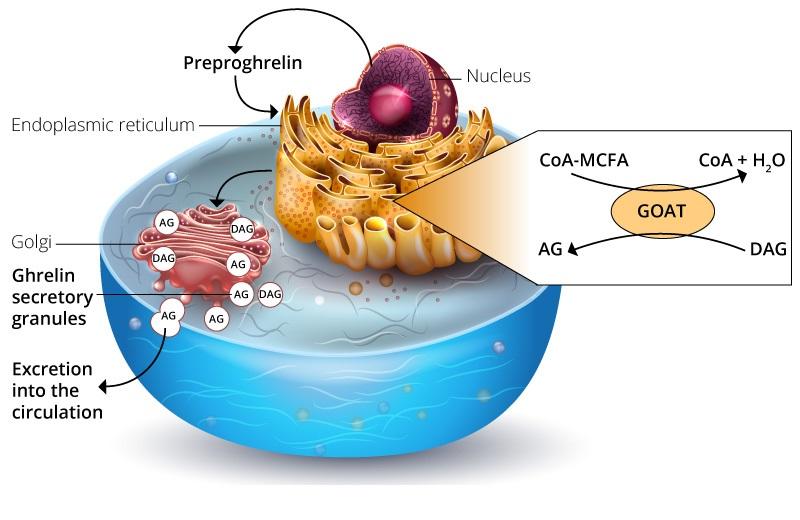July 2005 European Journal of Endocrinology
Authors:
Giancarlo Natalucci, University of Zurich, Stefan Riedl, University of Vienna, A Gleiss, T Zidek
Abstract and Figures
Ghrelin stimulates GH release and causes weight gain through increased food intake and reduced fat utilization. Ghrelin levels were shown to rise in the preprandial period and decrease shortly after meal consumption, suggesting a role as a possible meal initiator.
However, ghrelin secretion in fasting subjects has not yet been studied in detail. 24-h ghrelin profiles were studied in six healthy volunteers (three females; 25.5 years; body mass index 22.8 kg/m(2)) and compared with GH, insulin and glucose levels. Blood samples were taken every 20 min during a 24-h fasting period and total ghrelin levels were measured by RIA using a polyclonal rabbit antibody. The circadian pattern of ghrelin secretion and pulsatility (Cluster analysis) were evaluated. An increase and spontaneous decrease in ghrelin were seen at the timepoints of customary meals. Ghrelin was secreted in a pulsatile manner with approximately 8 peaks/24 h.
An overall decrease in ghrelin levels was observed during the study period. There was no correlation of ghrelin with GH, insulin or blood glucose levels. This pilot study indicates that fasting ghrelin profiles display a circadian pattern similar to that described in people eating three times per day. In a fasting condition, GH, insulin and glucose do not appear to be involved in ghrelin regulation. In addition, we found that ghrelin is secreted in a pulsatile pattern. The variation in ghrelin independently of meals in fasting subjects supports previous observations that it is the brain that is primarily involved in the regulation of meal initiation.

